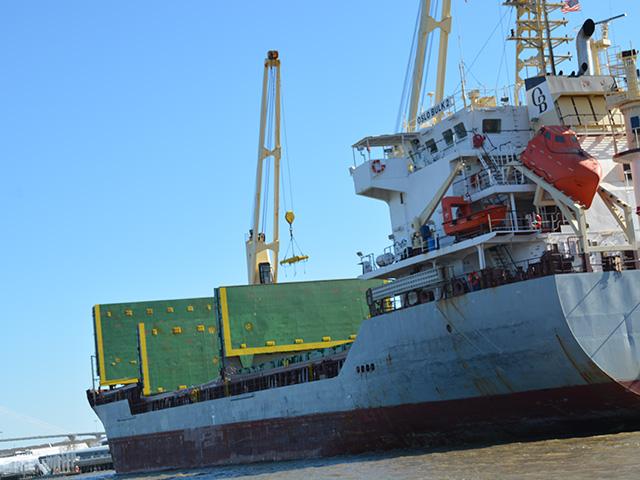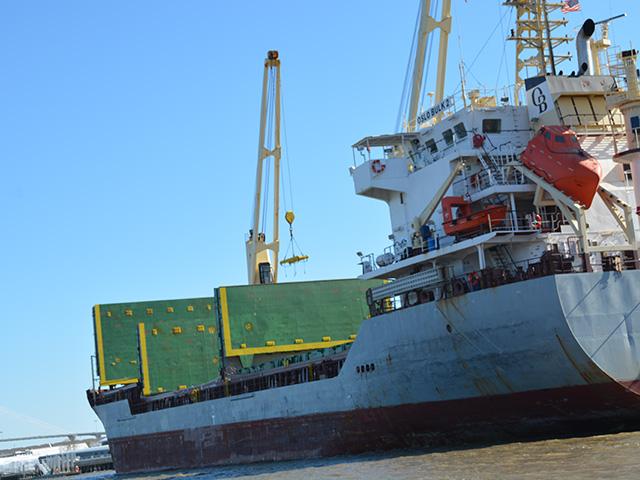Ag Policy Blog
Taking Another Look at USTR's Plan for Fees on Chinese Ships
There are some open questions about the new import docking fee on Chinese ships released by the U.S. Trade Representative's Office (USTR) last Thursday. Some agricultural groups believe the new plan is a much better deal than USTR's initial plan to charge a $1.5 million per port of call.
Ships arriving at U.S. ports already empty, for instance, could forego the fees.
National Corn Growers Association President Kenneth Hartman Jr., said, "While we are still working to understand how this new version will impact the corn industry, we believe this final action is more workable than the initial proposal."
NCGA estimated that the original proposal could have cost corn growers as much as $0.64 per bushel, which translates to 14% higher costs from current price levels. The added cost had the potential to reduce U.S. corn exports and impede market access, the group said.
NCGA explained, "Instead, the released action specifies that fees will be assessed on Chinese vessel operators and Chinese-built ships per voyage, not per port call, as was originally proposed. Additionally, fees cannot be imposed more than five times per year. And short voyages, vessels arriving empty, and vessels carrying less than 50,000 tons will be exempt from the fees."
"The action will occur in two phases to allow businesses to adjust, and for the first 180 days, applicable fees will be set at zero," NCGA said.
Essentially, bulk cargo should ships would get a pass on the fees if they are arriving at ports empty. Grain exporters see that as a win, assuming shipping companies don't opt for some form of reciprocal fee.
So, perhaps the fees might not be as bad as expected. Still, Todd Hultman, who recently retired as DTN's lead analyst, also ran some numbers on what a $50 per metric ton fee would look like if Chinese companies choose to impose the fee on outbound cargo.
For corn:
One bushel of corn weighs .0254 mt x 2.65 million bushels on a Panamax ship equals 67,310 mt. 67,310 mt x $50/mt fee comes to a $3.3655 million fee per Panamax ship. 2.65 mill bushels would equate to $1.27 per bushel for corn.
P[L1] D[0x0] M[300x250] OOP[F] ADUNIT[] T[]
For soybeans:
One bushel of soybeans weighs .0272155 mt x 2.1 million bushels on a Panamax ship. That equals 57,152.55 mt. Multiply that by $50 a ton, that comes to a $2,857,628 fee per Panamax. At 2.1 mill bushels, that comes to $1.36 per bushel for soybeans.
According to the U.S. Grains Council, the weight conversion for soybeans is similar to wheat. One bushel weighs .0272 mt. That would put the fees for wheat on par with soybeans.
Under the plan released on Thursday, ships based out of China will be charged up to $50 per ton starting October 24, 2025. The tonnage fee would then increase $30 a ton to $80 a ton on April 17, 2026, and increase $30 a ton the next two years, eventually reaching as high as $250 a ton.
Companies not based in China but using Chinese-built ships will be charged $18 per ton, or $120 per container, whichever is higher.
Typically container ships arriving at West Coast ports will hold anywhere from 12,000 to 24,000 containers.
It was also reported shipping companies outside of China would get a pass on the port fees if they have ordered a new U.S.-built ship. Keep in mind the United States built all of three ships last year.
U.S. Wheat Associates (USW) and the National Association of Wheat Growers (NAWG) said, "We appreciate USTR's understanding of the impact the original proposals could have had on wheat growers and the grain trade. The uncertainty about the proposals was already causing problems for overseas customers, who were hesitant to make purchases with additional port fees looming."
The International Fresh Produce Association (IFPA) said, "While the USTR's actions may affect agricultural and perishable products, we appreciate that the revised fee structure appears to take several concerns unique to the agricultural sector into account."
IFPA noted that USTR will hold a hearing on May 19, and said it will submit formal comments to the agency in advance of that date.
American Association of Port Authorities (AAPA) President and CEO Cary Davis said, "America's ports appreciate the Trump administration's willingness to incorporate industry's concerns in their efforts to counter China's dominance in the maritime space."
"This policy will, however, still drive up the cost of shipping, reduce volume through our nation's trade gateways, and make goods, especially automobiles, more expensive everyday American consumers," Davis said.
Davis said the policy will likely severely impact automobiles, particularly due to an additional 100% tax on cargo handling equipment (CHE).
AAPA will submit comments to USTR and encourage ports to contact their Congressional delegations opposing new CHE tariffs and instead champion legislation to create a production tax credit for domestically produced CHE, which would be necessary to incentivize reshoring, Davis said.
Sen. Roger Marshall, R-Kan., said in a news release, "Thanks to President Trump and U.S. Trade Representative Jamieson Greer for putting America first by placing industry-friendly service fees on Chinese-manufactured ships that carry U.S. farm commodities."
"China has dominated global shipping fleets for too long," Marshall said. "This move protects American agriculture, boosts domestic shipbuilding, and strengthens our national security."
DTN Political Correspondent Jerry Hagstrom contributed to this report.
Also see, "Trump Administration Releases Plan to Charge Port Fees on Chinese Ships,"
Chris Clayton can be reached at Chris.Clayton@dtn.com
Follow him on social platform X @ChrisClaytonDTN
(c) Copyright 2025 DTN, LLC. All rights reserved.






Comments
To comment, please Log In or Join our Community .